Another big week in policy land. We’ve big features on grade inflation and post-qualification admissions to get your brain buzzing.
Brexit news for EU citizens setting in the UK
This week the Government released further details on how EU citizens and their families could apply for settled status through the EU settlement scheme. The link also contains the draft immigration rules. The Government issued a news story on the settlement scheme, it sets out the 3 steps applicants will complete – prove identity, demonstrate they live in the UK, declare that they have no serious criminal convictions.
Key information on the scheme:
- It is proposed that an application will cost £65 and £32.50 for a child under 16. For those who already have valid permanent residence or indefinite leave to remain documentation, they will be able to exchange it for settled status for free.
- The Home Office will check the employment and benefit records held by government which will mean that, for many, their proof of residence will be automatic. Those who have not yet lived in the UK for five years will be granted pre-settled status and be able to apply for settled status once they reach the five-year point. From April 2019, this second application will be free of charge.
- The new online application system will be accessible through phones, tablets, laptops and computers. The Government will provide support for the vulnerable and those without access to a computer, and continues to work with EU citizens’ representatives and embassies to ensure the system works for everyone.
- The settlement scheme will open in a phased way from later this year and will be fully open by 30 March 2019. The deadline for applications will be 30 June 2021.
- The Home Office will continue to engage with stakeholders, including employers, local authority representatives and community groups, about the detailed design of the scheme before the Rules are laid before Parliament.
Immigration Minister, Caroline Nokes, said: “EU citizens make a huge contribution to our economy and to our society. They are our friends, family and colleagues and we want them to stay. This is an important step which will make it easy for EU citizens to get the status they need to continue working and living here. We are demonstrating real progress and I look forward to hearing more detail on how the EU will make reciprocal arrangements for UK nationals living in the EU.”
Immigration
On Tuesday the Commons Science and Technology select committee debated an immigration system that works for science and innovation. The witnesses highlighted that flexibility and speed of application were essential and advocated for a frictionless reciprocal immigration system between the UK and the EU. Read the full text of the session here. Key points:
- Science and Technology to be within the broader immigration system rather than separate special arrangements or a two tier system. A transition period may be necessary.
- One witness argued for a reciprocal arrangement with EU scientists.
- It was noted the EU are currently developing a directive allowing free movement within the EU of individuals on science visas from outside the EU.
- Mobility for short stays is essential, e.g. conferences and discussion groups – these short stays should not require visas.
- One witness noted the limited ability of small British companies that needed to bring in talent to grow. She raised that this successful navigation of the immigration system was essential and the needs of small business had to be considered within the general immigration system design.
- The problems with using salary as a proxy for awarding tier 2 visas was discussed, particularly with the regional variability within the UK
- One witness argued that research activity needed to be permitted in the indefinite leave to remain rules.
- The limitations of the shortage occupations list were noted, i.e. retrospective analysis of data created a significant lag within the system and it wasn’t responsive enough. It was postulated that these problems would resolve if the cap was removed.
Parliamentary Questions – Immigration
Sam Gyimah responded to a parliamentary question on visa requirements for students of Indian nationality studying in the UK (full text here) stating there was no limit on the number of genuine international students who can come to the UK to study and
- “we welcome the increase in study related visa applications from Indian students since last year and the fact that over 90% of Indian students who apply for a UK visa get one. This shows that international students continue to recognise the benefits of studying in the UK, and are responding to our excellent higher education offer.”
Commenting on student immigration, Alp Mehmet, Vice Chairman of Migration Watch UK, said: “Genuine students are, of course, welcome but this is a slippery slope. The last time that the student visa system was loosened in 2009 it took years to recover from the massive inflow of bogus students, especially from India. We cannot afford another episode like that.”
And there was a further question on immigration:
Q – Gordon Marsden: What additional criteria will be used to decide whether (a) India and (b) other additional countries will be eligible for inclusion in the low-risk Tier 4 visa category for overseas students.
A – Caroline Nokes: We have regular discussions with the Indian Government on a range of issues including on visas and UK immigration policy. Careful consideration is given to which countries could be added to Appendix H of the Immigration Rules, taking into account objective analysis of a range of factors including the volume of students from a country and their Tier 4 immigration compliance risk. The list of countries in Appendix H will be regularly updated to reflect the fact that countries’ risk profiles change over time.
There were three further questions on Indian students this week, all received the same response as above.
British Nationals Abroad – home fees?
Q – Paul Blomfield: whether UK nationals resident in the EU who fall within the scope of the Withdrawal Agreement will be treated as home students for the purpose of university fees after December 2020.
A – Sam Gyimah:
- There are currently specific provisions in the rules that provide access to student support for persons who hold settled status in the UK, and who have left England to exercise a right of residence elsewhere in the Economic European Area (EEA) or Switzerland.
- We have agreed with the EU that equal treatment principles will continue to apply for those covered by the Withdrawal Agreement. This means that UK nationals resident in the EU (and EU nationals resident in the UK) before the end of the implementation period on 31 December 2020 will be eligible for support on a similar basis to domestic students in the relevant member state. It will be for member states to decide how they will implement the citizens’ rights deal in accordance with the Withdrawal Agreement. Entitlement to student finance and home fees status after 31 December 2020 for those outside the scope of the Withdrawal Agreement is under consideration.
Grade Inflation
Thursday’s headlines for the sector were all about grade inflation, the actual report is here. The biggest increases are shown on page 16 – Surrey, East Anglia, Dundee, University of West London, Imperial, Huddersfield, Greenwich, Southampton Solent, Wolverhampton and Aston. These charts showing the absolute highest and lowest proportion are interesting and do raise some questions about whether the call for benchmarks is partly driven by the juxtaposition of our oldest and some of our newer universities in this first group. The arguments about prestige (made in the context of a discussion about REF and TEF) in this HEPI paper by Paul Blackmore come to mind. “Although the basis on which graduates and employers make decisions is a complex one, some institutions clearly have more powerful signalling effects than others.”
Research Professional have another helpful summary with responses from Nicola Dandridge, Nick Hillman and others
- Between 1997 and 2009, the proportion of “firsts” awarded increased from 7 to 13 per cent, and in the next seven years it doubled, reaching 26 per cent by 2017. The percentage of students being awarded a 2:1 has also risen from 40 to 49 per cent since 1995, meaning that the proportion of undergraduates awarded either a first or 2:1 has risen from 47 to 75 per cent in the last 22 years. There are now 40 institutions that award firsts to at least 30 per cent of their students. The report, A degree of uncertainty: An investigation into grade inflation in universities, says that one of the most likely explanations for the grade inflation is a lowering of degree standards by institutions. It states that some academics have reported pressure from senior managers to do so, and says that half of universities have recently changed the way that they calculate their students’ final grade so that the proportion of top grades they award keeps pace with other institutions”….
- “Harriet Barnes, head of higher education and skills policy at the British Academy—which operates the Humanities and Social Sciences Learned Societies and Subject Associations Network—told HE it was “difficult to see how a national assessment would work without encouraging universities to standardise course content and assessment in some way”. “This would threaten academic diversity, limiting students’ opportunities to fully explore their discipline, and undermining teaching by academics who are leaders in a specialist area,” she said. “We also have concerns about the feasibility of learned societies setting national assessments. Not every discipline is represented by a single body, and many are run by volunteers without the capacity to set and monitor assessments.”
- Nick Hillman, director of the Higher Education Policy Institute, told HE that asking learned societies to design assessments was “an odd suggestion”, and that it was “surprising to see Reform recommending less autonomy for institutions” “I’ve long been interested in getting learned societies and others more involved in preparing course materials and helping shape courses,” he said, “but it would make most sense to do that for first-year students adapting to higher education rather than those specialising later on in their degree.”
- Nicola Dandridge, chief executive of the Office for Students, said in a statement that “if there is artificial grade inflation this is not in the interests of students, employers or the higher education sector”. She added that work was “currently under way by the OfS and other partners to assess the complex issues” tackled in the report.”
The BBC story is here.
With the counter arguments, Jim Dickinson writes on Wonkhe:
- ““Establishing causality is problematic, yet the correlational evidence suggests that when tuition fees rise, so does the proportion of top degree outcomes”. Maybe that big investment means they’re working harder. Maybe more students are working hard to achieve the standard. Maybe teaching has improved, and assessment has become more diverse. Maybe more students are taking resists. After all, “inflation itself must be driven by factors that directly translate into universities awarding higher marks”.
- Trouble is, the report then goes on to look at all the other reasons that the sector has cooked up for the miracle. A pro-VC from UEA is mocked for citing improved entry qualifications, though without mentioning the student to staff ratio shift from 18:1 to 13:1 in the rest of his quote. Degree algorithm fiddling is cited, recycling a debunked quote. And without any reference to hard work or student support or assessment techniques, it then finds a handful of academics’ anecdotes to say they’ve been pressured to lower standards. Cue the A-levels chorus of “we worked harder and so did students” from the sector, falling on deaf ears in the press and the think tanks.”
There is an interesting comment in response on the Wonkhe article:
- “Quick summary of previous responses, querying the assumption that grade inflation is necessarily bad.
- 1) If attainment gaps have closed (e.g. male/female gap, affluent/deprived student background gap, white/ethnic minority gap) by the under-achieving group catching up with the higher-achieving group, grade inflation is probably a positive thing.
- 2) If average marks awarded have risen (i.e. it is not just the case that the degree classification proportions have shifted), and if positive skew in the distribution has not been replaced with negative skew, this indicates that grade inflation is not the only potential explanation.
- 3) Even if grade inflation as conventionally understood has occurred, the cure could be worse than the disease. The cure could take the form of students undermining each other rather than working collaboratively, seeking to manipulate or complain against lecturers, students motivated by mark gain rather than a desire to learn (not the same thing), even higher levels of mental health anxiety than present.
- 4) In most subjects, students achieving first class degrees do not have better career outcomes than students with lower second class degrees. This suggests that employers do not rely on degree class as a signal and have developed effective recruiting mechanisms”
The sector wasn’t standing still on grade inflation before this week’s announcements. UUK were already tackling the issue:
- The first element of this work responds to the specific request to clarify how the sector defines degree classifications. This work is on course to produce a reference document by September, and this will aid the transparency and consistency of approaches to degree classification and standards across the sector. The work is founded on the view that students should be assessed against clear criteria rather than setting quotas for the number of students who can achieve a 1st or 2.1. Quotas can demotivate students and devalue the level of knowledge gained over the course of their studies. The reference document is intended as a practical tool to aid academic practice and to improve understanding of the classification system, including among employers. The reference point will also be useful for new providers who gain degree awarding powers without prior validation by an existing degree body, and the established academic frameworks that come with this relationship. However, it will still be essential for universities to set and maintain their own academic standards, rather than simply marking against an off-the-shelf set of criteria.
This is also discussed on Wonkhe. “There is also a need for the sector to take meaningful and timely action to respond to stakeholder concerns on grade inflation, as other contributions to Wonkhe and elsewhere have suggested in recent days. UKSCQA will lead the coordination of a sector response on this issue.”
HEPI have published a guest blog – The hard truth about grade inflation – by Dr Andrew Hindmarsh, Head of Planning at the University of Nottingham, and he also oversees the preparation of data for the Complete University Guide. It busts a number of theories:
- So-called grade inflation has been greatest at universities with low average tariff scores and least at those with high average tariff scores. One explanation for this could be that the average tariff score has increased more at universities where the average score was lower to start with. If those low tariff score universities had had entry standards that had been rising faster, then you might expect there to be an impact on the subsequent attainment of the students. See Graph 3 shows that this has not been the case. In fact, the average tariff score of universities in quartiles 1 to 3 have all gone down, while only those in quartile 4 (the highest) have gone up.
- What about teaching quality – could that explain the pattern of changes? Could it be that the universities with the best teaching quality have seen outcomes improve the most? One possible measure of teaching quality is the TEF (Teaching Excellence Framework) outcomes. …the hypothesis fails – it is the Bronze institutions which have seen the biggest changes in degree outcomes.
- The questions on teaching in the NSS could be an alternative measure of teaching quality and this time there is a run of data so the change in NSS scores can be correlated with the changes in degree classification.However, once again the hypothesis fails: there is no correlation between the change in NSS scores on questions 1 to 4 between 2013 and 2016 and the change in degree classifications
- So, what is going on? There are plenty of hypotheses left which our database cannot test. One change that has been happening is an increasing use of the full range of marks, particularly in Arts subjects. In the past, there was a tendency to avoid giving high marks with those above 80 in the Arts being very rare indeed. These high marks are much more common in the Sciences, particularly the numerical sciences, where it is possible to achieve maximum marks on mathematical problems. However, many universities are now actively encouraging all subjects to use the full range of marks with the result that, when an average mark is calculated, this is more likely to fall above a particular class boundary as the higher marks pull up the average. This hypothesis also explains why the proportion of first-class degrees has risen faster than the proportion of 1st/2:1s as you would expect more of the high marks to be obtained by students already at or close to a first-class standard. The conclusion must be that this is a complex subject and, while some explanations for changes in degree classifications can be ruled out, there are plenty more to be considered. The accusation that grade inflation is the cause needs to be justified with evidence rather than simply asserted as if it were a self-evident truth.
We’ll have to wait for the outcome of the OFS work referred to above to see what happens next.
Sam Gyimah gave a reassuring answer to a parliamentary question this week. It was focused on the TEF but if extrapolated into the context of the single national assessment recommended to tackle grade inflation it is reassuring to know the Government doesn’t anticipate going even further to observe ‘classrooms’.
Q – Gordon Marsden: To ask the Secretary of State for Education, what discussions he has had with the Office for Students on the merits of observing teaching as an element for assessment in the teaching excellence framework.
A – Sam Gyimah:
- Higher Education (HE) institutions, as independent and autonomous bodies, are responsible for the range and quality of the courses they deliver. Assessing the performance of an institution through observation would jeopardise the autonomy of the HE sector.
- The Teaching Excellence and Student Outcomes Framework (TEF) uses a range of existing metrics related to teaching and learning to make an assessment of teaching excellence, alongside a submission of evidence from the providers themselves. The metrics used for the assessment are all well-established, widely used and trusted in the HE sector. The department consulted extensively on the metrics used in the TEF.
- My right hon. Friend, the Secretary of State for Education has not discussed with the Office for Students, the observation of teachers as an additional element within the TEF.
Senior Pay Guidance
The OfS has now issued guidance on VC and senior pay. Universities are required to report and justify the VC’s total remuneration package and details of senior staff paid over £100,000. OfS will publish these details across the sector annually commencing in 2019. Nicola Dandridge commented: The Office for Students is today setting out our increased expectations around senior pay. Higher education providers will have to give us full details of the total pay package of their vice-chancellor. In addition, they will have to provide detailed justification of this package. As part of this, we will be looking at the ratio between the head of institution’s pay and the pay of the other staff at the institution. This will provide additional visibility and transparency – and enable us all to ask tough questions as necessary.
In response to the guidance UCU general secretary Sally Hunt noted of the OfS requirements: much of the information being called for is already available in universities’ accounts or through freedom of information (FOI) requests.
The guidance was well covered in the media this week: Times, Guardian, THE, Independent.
In the Independent article Michael Barber is reported as stating the OfS will look for salaries that ‘stick out like a sore thumb’… such as … “Like a modest size university, and you are regional and you are not playing globally, and your pay is the same as a top university competing in the global market for research.”
Political Crystal Ball
Dods (political monitoring consultants) have produced a series of short policy lookahead guides contemplating what is coming up politically in the following spheres over the next six months:
Admissions
The Post Qualifications Admissions – how it works across the world report was released on Tuesday comparing the UK’s HE admissions system with that of 29 other countries worldwide. The document critiques the UK’s system of offering a HE place before a student’s final grades are known, particularly noting the unreliability of provisional grades (only 1 in 6 accurately predicted).
The report calls for more than just post-qualification offer making. It outlines enhanced support for choices and decisions and a pre-results preparation week to aid social mobility (see page 17 onwards). The report does acknowledge the benefits of the current pre-qualifications admissions system: it aids students from under-represented backgrounds because they are often predicted higher grades than they achieve (page 5); changing to a post qualifications system would squeeze teaching as exams would need to move earlier in the year, it would also reduce the time HE providers have to consider applications and decide on whether to offer a student a place.
The report was commissioned by UCU and compiled by Dr Graeme Atherton (Director of social mobility organisation NEON). Given the author’s champion of disadvantage it’s interesting the report has received conflicting responses with no clear consensus of whether a change would support or further hinder underrepresented or disadvantaged groups in society.
UCAS responded to the report stating changing to a post qualifications admission system would force structural change to the school system and stating it would be harder for poorer pupils who would have to make decisions after they had finished their exams and left school. Clare Marchant (UCAS): “students from disadvantaged backgrounds would be less likely to have access to teachers and support in making application choices“.
Meanwhile The Sutton Trust argue that Atherton’s claim that under-represented students receive higher predicted grades is incorrect stating ‘high attaining disadvantaged students are more likely to have their grades under-predicted than their richer counterparts. This could result in them applying to universities which are less selective than their credentials would permit.’
UCU’s press release leads a further attack on unconditional offer making. Unconditional offers were previously seen as a supportive measure for social mobility, for example, for a young student within the care system who needed stability and security over their university destination prior to giving up their living accommodation. However, unconditional offers have increasingly received poor press over the last two years claiming students become lazy and don’t try so hard at exams once they have a guaranteed offer or that it pushes an able student towards a lower tariff university when their results would be accepted at a more prestigious institution. Concerns were also raised about unconditional offers last week at Buckingham’s Festival of HE.
The BBC has covered the report.
The report also highlights some of the challenges that the other systems face. One notable issue in some European countries is that almost automatic admission based on results plus low fees leads to huge dropout rates, e.g. in France. And if the focus is almost exclusively on grades it’s likely another subset of WP students will be disadvantaged. The report raises some questions but it would be interesting to do an analysis of other metrics such as completion and satisfaction, and WP indicators as well as graduate outcomes.
There are other issues with the current system that have been raised in recent times – e.g. concerns about the role of personal statements and the role of social capital. Given the author’s day job at the National Education Opportunities Network (NEON), there is a focus in the report on equity in the system.
The article below raises the question of conflict of interests – would such a system reduce or increase game playing in the competition for students? – note last week’s discussions in Buckingham about unconditional offers (which many commentators see as a “bad thing”).
Research Professional have a great article on the report. As the article notes there is unlikely to be a rush to review this given all the other government priorities. But as new A levels come in, raising uncertainty about grades this year, might there be more applicants choosing to use clearing to trade up or take a year to consider and apply afterwards. And whether over time this might therefore become more of a priority for review?
Erasmus+
On Thursday there was a debate in the House of Commons on the Erasmus+ programme and discusses the future position of the UK with regard to the scheme post Brexit. The House of Commons Library have produced a briefing note on Erasmus+.
Some fun facts on Erasmus+ taken from the briefing:
- The EU sees Erasmus+ programmes as a means of addressing socio-economic issues that Europe may face like unemployment and social cohesion.
- 10,944 students in higher education in the UK participated in the 2016 applications for study placements abroad through the Erasmus+ scheme.
- In 2015-16, the most popular host countries were France (2,388), Spain (2,131), Germany (1,312), Netherlands (701), and Italy (687).The UK was the 7th highest participating country in the programme in 2015.
- The total value of all Erasmus+ projects funded in the UK has increased in each year from €112million in the 2014 ‘call’ to €143million in 2017.
- The Erasmus+ programme is run on run seven yearly cycles and the current cycle will end in 2020.
- The UK Government has promised to underwrite funding that was due to continue after Brexit and UK citizens are currently encouraged to apply for funding under Erasmus+.
- On 30 May 2018 the EU Commission announced that it is proposing that for the next cycle starting in 2021 any country in the world will be able to participate if they meet set requirements. It is unclear at present what the UK’s participation in Erasmus+ will be after Brexit but the announcement opens up the possibility of the UK’s continued involvement in the programme.
The Future of the Erasmus+ Scheme after 2020: House of Commons Debate
The Erasmus+ debate span a number of topics: social mobility, UUK’s Go International project, strategy for how students would continue exchanges with EU universities in the event of a Brexit no deal.
Sam Gyimah stated: he recognised that international exchanges were “important to students, giving them social mobility and widening their horizons, and it is valuable to our soft power.” And to clarify the Government’s position on the future participation of Erasmus+ post 2020 within the uncertainty of Brexit he committed that the Government would “discuss with the EU the options for future participation as a third country, as the Prime Minister has made clear, on the basis of a fair and ongoing contribution. So we have accepted that we will want the option to participate and we know we must pay into the programme, but obviously we want the contribution to be fair and we will have to negotiate the terms.” He reassured the House that the Government were “actively engaged in the discussions on the design of the programme and we have made the EU aware of our desire to participate in the programme, and there is a lot to welcome in the framework proposals.” On cost, he said the Government had noted “the proposal for the budget to be doubled, so we need to discuss our participation based on a sensible and hard-headed assessment of the UK’s priorities and the substantial benefit to the EU should the UK decided to participate.”
Read the full text of the debate here.
STEM skills
The Public Accounts Committee has been running an inquiry into Delivering STEM skills for the economy and published a report on Friday. STEM is recognised as essential to the future of UK industries and the Government has been running initiatives to improve STEM skills in the workforce including a substantial focus on STEM curriculum in schools. Although some initiatives to address STEM skills shortages have been successful there remain problems:
- Women remain underrepresented in STEM courses and jobs – only 8% of STEM apprenticeship starts are undertaken by women.
- In 2016 only 24% of those with STEM degrees were working in a STEM field six months after graduation.
- The Government has focussed on schools to grow the next generation of skilled STEM workers. However, the report finds that the quality of careers advice in schools is patchy at best, perpetuating misconceptions about STEM careers. In addition, the way that schools are funded will restrict the likelihood of pupils moving to other, more STEM-focused learning providers, such as the new institutes of technology.
- The Government is also unable to accurately assess the volume of the STEM skills shortage.
- To make better informed decisions, [Government] departments also need to tackle the apparent lack of industry and commercial experience on their STEM boards and working groups.
Government departments spent almost £1 billion between 2007 and 2017 on initiatives to encourage more take-up of STEM subjects.
The Committee made 8 recommendations:
- Following publication of the Migration Advisory Committee report in September 2018, BEIS and DfE should, within six months, set out the further steps they will take to ensure that STEM skills shortages are addressed.
- DfE should set out what specific steps it will take to ensure that Skills Advisory Panels are sufficiently aware of national and global skills supply issues to be fully effective.
- By summer 2018, the departments should review the membership of all STEM boards and working groups, and address any shortfalls in expertise—for example, in industry knowledge or experience in STEM learning and work.
- DfE must identify as soon as possible whether financial incentives for teacher training have delivered value for money, and report its findings to the Committee as promised (i.e. have the teachers remained in the profession).
- By the end of 2018, the departments should establish, and start to monitor progress against, specific targets relating to the involvement of girls and women in key STEM learning programmes such as apprenticeships.
- DfE should make better use of data on career destinations and salaries to incentivise young people to work towards careers in particular STEM sectors where there is higher need. As part of its plans to improve the quality of careers advice, DfE should work with Ofsted to consider rating the quality of advice provided in schools.
- As a matter of urgency, DfE needs to develop a clearer plan for how new types of learning institution, such as the institutes of technology, will attract the numbers of students they need to be viable.
- DfE should ensure it has effective monitoring systems in place to quickly identify apprenticeship programmes that are not fit-for-purpose, along with poor quality provision, and the action it will take in each case
Meg Hillier MP chaired the inquiry, she commented:
“Warm words about the economic benefits of STEM skills are worth little if they are not supported by a coherent plan to deliver them. Government must take a strategic view, properly informed by the requirements of industry and the anticipated impact of Brexit on the UK’s skills mix.
But Government also needs to sharpen its focus on the details, from providing sound advice to pupils through to ensuring schools have the right skills in the classroom and STEM-focused institutions are properly supported. Poor-quality apprenticeships must be weeded out and there is still much work required to address the striking gender imbalance in STEM apprenticeships.”
Read the Committee’s press release: Sharper focus needed on skills crucial to UK productivity
STEM Parliamentary Questions
Q – Robert Halfon: what assessment he has made of the potential contribution of students with a qualification in Design and Technology GCSE to filling the skills gap in engineering.
A – Nick Gibb:
The design and technology (D&T) GCSE is a useful qualification for those pupils considering a career in engineering. The Department has reformed the D&T GCSE to ensure that it is a valuable qualification and includes the knowledge and skills sought by leading employers. Content has been aligned with high-tech industry practice with strengthened technical, mathematical and scientific knowledge.
Q – Robert Halfon: what information he holds on the reasons for the decline in the number of entries to Design and Technology GCSE since 2010
A – Nick Gibb:
Design and Technology GCSE entries have declined since before 2010. In 2016/17 over 150,000 pupils in England entered a Design and Technology (D&T) GCSE at the end of Key Stage 4, which is over 25% of all pupils (data source).
Subject experts identified a number of issues with the previous suite of D&T GCSEs. They advised that the GCSEs were out of date, did not reflect current industry practice, and lacked sufficient science, technology, engineering and mathematics content. These issues could have had an effect on take up. One issue was that there were six separate GCSEs focusing on different materials (such as resistant materials and textiles) or particular aspects of D&T (such as product design and systems and control). These did not allow pupils to gain a broad knowledge of the design process, materials, techniques and equipment that are core to the subject. The Department has reformed the D&T GCSE to address these issues. There is now just one GCSE title which emphasises the iterative design processes that is at the core of contemporary practice and includes more about cutting edge technology and processes. The new GCSE now effectively provides pupils with the knowledge they need to progress to further study and careers, including in high-tech industries.
Q – Robert Halfon: what steps he is taking to revise the national curriculum to ensure that students are prepared for T-levels.
A – Nick Gibb:
- T-levels will provide students with knowledge and the technical, practical skills needed to get a skilled job. They will also allow students to progress into higher levels of technical training including degree courses in subjects relevant to their T-level.
- My right hon. Friend, the Secretary of State announced in April that he would make no changes to the National Curriculum within the lifetime of this Parliament; and there should be no need to do so to prepare pupils for T-levels. All state schools are required to teach broad and balanced curricula that will provide young people with the skills and knowledge they need to undertake post-16 education and training; and the design of T-levels will take into account the knowledge and skills that pupils obtain through the current National Curriculum and reformed GCSEs.
TEF
The DfE has published the research report: TEF and informing student choice: Subject-level classifications, and teaching quality and student outcome factors. The report notes that TEF was introduced to measure teaching quality and student outcomes to drive up teaching quality within the HE sector and inform prospective students so they can make more informed choices when choosing a HE institution. The research behind the report consider the methodology behind how subject level TEF could be delivered and gathered applicant and student views on what was important to them. The report will help inform the next iteration of the TEF.
Here are the key conclusions:
- For subject level TEF CAH2 was preferred due to its accuracy for making subject-level classifications, and is considered most sufficient for providing information to help applicants choose where to study. (See here from bottom of page 39 to understand CAH2.) It was recognised some the CAH2 categories needed rewording, particularly subjects allied to medicine which needs more in-depth consideration. The Broad (7 subject) classification system was not helpful to applicants.
- The study also highlights a number of teaching quality and student outcome factors that could be considered when further developing subject-level TEF. It’s important to consider teaching quality factors that have a short term impact on student satisfaction whilst at University with those having a longer term impact (such as graduate outcomes). There were a handful of factors that were low on the analyses and potentially, from a student perspective, could be deprioritised from subject-level TEF development. This includes teaching staff contracts, class sizes and the academic qualifications of teachers.
- The research looked at the awareness and influence of the TEF awards on students currently or about to start at a HE institution.
- 2/5 (two-fifths) of 2018/19 applicants were aware of what TEF refers to;
- 1/8 had used the TEF to inform their choice of institution, or intended to do so.
- 1/4 were aware of the TEF award given to their first-choice institution.
The research stated that as TEF becomes more embedded, we would expect applicant and student awareness and usage of TEF to grow over time, and the results from this research will form the baseline against which future awareness and student engagement can be measured.
The research concluded:
- The study demonstrates that applicants and students would value the introduction of subject-level TEF ratings. Around three-quarters of all applicants and students (68 -78%) reported that they would find subject-level TEF awards useful while only a tiny minority (3-5%) suggested it was of no use. Applicants that were aware of the provider-level TEF and its purpose were also more likely to consider subject level TEF to be useful.
Some parliamentary questions from this week relevant to the TEF:
Q – Gordon Marsden: To ask the Secretary of State for Education, what discussions he has had with the Office for Students on the adequacy of the metrics for the Teaching Excellence Framework.
A – Sam Gyimah:
- To enable students to make the best decisions about their future, it is important that they have consistent independent information about the courses they are considering. The Teaching Excellence and Student Outcomes Framework (TEF) metrics focus on what matters to students: teaching quality, the learning experience, and student outcomes. The development of subject-level TEF will give students more information than ever before. The department has worked collaboratively with the Office for Students (OfS), and the Higher Education Funding Council for England before that, throughout the development of the TEF.
- The metrics used for TEF assessments are all well-established, widely used and trusted in the HE sector. We consulted the sector extensively on the design of TEF, including the metrics to be used, in 2016. We have recently concluded a consultation on subject-level TEF and the OfS has completed the first year of the pilot of subject-level TEF. Findings from those exercises, including on the operation of the metrics, will be shared between the department and OfS and will inform the further development of the TEF.
Q – Dan Jarvis: To ask the Secretary of State for Education, what assessment he has made of efficacy of untrained PhD students being employed by universities to teach undergraduates.
A – Sam Gyimah:
- The Higher Education Statistics Agency collects and publishes data on the teaching qualifications of academic staff, but this does not enable an assessment of the efficacy of those staff or any PhD students that are teaching in universities. The Higher Education and Research Act enshrines the principle that higher education institutions are autonomous organisations with freedom to select, appoint, or dismiss academic staff without interference from government. However, the Teaching Excellence and Student Outcomes Framework (TEF) recognises and rewards excellent teaching in higher education. The Teaching Quality measure within the TEF core metrics uses data from the National Student Survey, including student views of the teaching on their courses. In addition, the new Office for Students published its regulatory framework in February of this year. This includes a condition that all registered higher education institutions must deliver well designed courses that provide a high quality academic experience for all students – and that providers should have sufficient appropriately qualified and skilled staff to deliver that high quality academic experience.
Science and Innovation Investment
On Thursday Greg Clark (Secretary of State, BEIS) highlighted new investment in UK talent and skills to grow and attract the best in science and innovation. Key points:
- £1.3 billion boost to attract and retain world-class talent and guarantee the UK’s position at the forefront of innovation and discovery through the modern Industrial Strategy
- Prestigious £900 million UK Research and Innovation (UKRI) Future Leaders Fellowship Scheme – open to best researchers from around the world the investment will fund at least 550 new fellowships for the brightest and best from academia and business
The inaugural UKRI Future Leaders Fellowship Scheme will receive £900 million over the next 11 years, with 6 funding competitions and at least 550 fellowships awarded over the next 3 years. The investment will provide up to 7 years of funding for early-career researchers and innovators, including support for part-time awards and career-breaks, providing flexibility to researchers to tackle ambitious and challenging areas. For the first time ever, this type of scheme will now be open to businesses as well as universities. The scheme aims to help the next generation of tech entrepreneurs, business leaders and innovators get the support they need to develop their careers. It is open to best researchers from around the world, ensuring the UK continues to attract the most exceptional talent wherever they may come from.
Complementing the Future Leaders Fellowship Scheme, the Royal Society, Royal Academy of Engineering, British Academy, and Academy of Medical Sciences will collectively receive £350 million for the prestigious fellowships schemes. This funding will enhance the research talent pipeline and increase the number of fellowships on offer for high skilled researchers and innovators.
Over the next 5 years, £50 million has been allocated through the National Productivity Investment Fund for additional PhDs, including 100 PhDs to support research into AI, supporting one of the Grand Challenges within the Industrial Strategy and ensuring Britain is at the forefront of the AI revolution.
There was a Parliamentary Question about UKRI this week.
Q – Nic Dakin: To ask the Secretary of State for Business, Energy and Industrial Strategy, what steps he is taking to ensure that UK Research and Innovation (UKRI) fulfils its mission to push the frontiers of human knowledge and understanding by appointing active research scientists to the UKRI Board.
A – Sam Gyimah: In line with the Higher Education and Research Act (2017), the Government has appointed UKRI Board members with experience across research, innovation and development, and on commercial and financial matters. This enables the UKRI Board to support and hold the organisation to account, ensuring it delivers effectively, rather than to supply discipline-specific expertise. That expertise is provided by the councils, who are uniquely positioned to understand the latest challenges and opportunities in their specific field, and they include a range of experts, including active researchers.
New LEO data
The DfE have issued the Graduate outcomes (LEO): subject by provider, 2015 to 2016, and have also published employment and earnings outcomes of graduates for each higher education provider broken down by subject studied and gender. The longitudinal education outcomes (LEO) data includes information from the Department for Education, Department for Work and Pensions and HM Revenue and Customs. The release uses LEO data to look at employment and earnings outcomes of higher education first degree graduates 1, 3, and 5 years after graduation in the tax years 2014 to 2015 and 2015 to 2016.
Main Document: Graduate Outcomes (LEO): Subject by Provider, 2015 to 2016
Full data release: Official Statistics, Graduate outcomes (LEO): subject by provider, 2015 to 2016
Consultations
Click here to view the updated consultation tracker. Email us on policy@bournemouth.ac.uk if you’d like to contribute to any of the current consultations.
New consultations and inquiries this week:
- Gender stereotypes in advertising
- Growth in creative industries
- Home Office immigration charges
Other news
Resignation: The Trade Minister, Greg Hands, resigned this week in protest at the Heathrow expansion. George Hollingbery has been appointed. Previously George was Theresa May’s Parliamentary Private Secretary.
Environment: Research Professional report on the Plastics Pollution Research fund. And there is a parliamentary question on the Environment Plan.
Q – Baroness Jones of Whitchurch: To ask Her Majesty’s Government what steps they have taken to involve scientists, economists and environmentalists in developing a set of metrics to measure the progress of the 25 Year Environment Plan; and when those metrics will be published.
A – Lord Gardiner of Kimble: We have engaged with scientists, economists and environmentalists from a number of external organisations since January to inform the development of a comprehensive suite of metrics and indicators.We will engage further with interested parties over the summer to canvas views on what this suite of indicators and metrics ought to cover. This will be achieved through a combination of publicly available briefing papers and targeted technical meetings with individual organisations and small groups of interested parties. The package of metrics we propose will then be subject to a further period of formal consultation in order to ensure we get this important measure absolutely right.
HE Sector Finances: The House of Commons Library has released information on HE Finance Statistics. It considers how the balance and make-up of university income and expenditure has changed over time, particularly since 2012. Summary from Dods: After many years of increased income, expenditure, more staff and students, the higher education sector in England especially faces on ongoing fall in income from the public sector, falling numbers of some types of students, particularly those studying part-time and much less certainty about the future make-up and nature of the sector as a whole. This has meant that the future public/private funding mix, size and role of the sector are the focus of more attention than at any time in the recent past. This note gives a short factual background on changes in income, expenditure and staffing since the sector took its present form in the mid-1990s. It also gives some information on variations between institutions. It includes data on all Higher Education Institutions in the UK.
Social Impact of Sport: The Digital, Culture, Media and Sport select committee held an evidence session on the social impact of participation in culture and sport this week. The witnesses stated that sports, arts, and cultural provision yielded significant social benefits, including educational and health benefits. However, it was noted that data collection and analysis needed to improve to fully demonstrate this. There was discussion that good programmes were underway but best practice needed to be shared more effectively and communication of what was available needed to improve. It was felt that the Government should link up the various programmes underway and communicate the holistic benefits of sporting and cultural interventions. Contact Sarah for a fuller summary.
Subscribe!
To subscribe to the weekly policy update simply email policy@bournemouth.ac.uk
JANE FORSTER | SARAH CARTER
Policy Advisor Policy & Public Affairs Officer
Follow: @PolicyBU on Twitter | policy@bournemouth.ac.uk





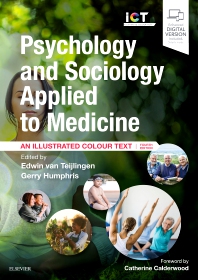
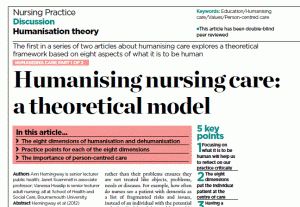



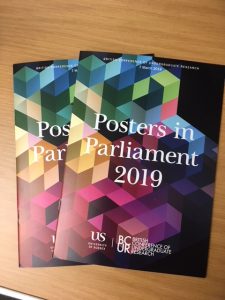
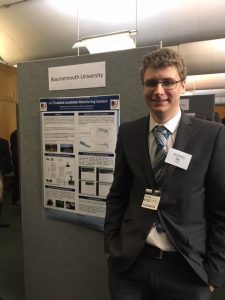
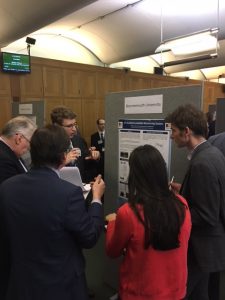
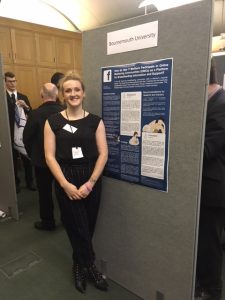
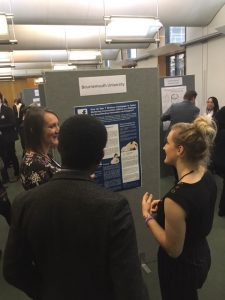
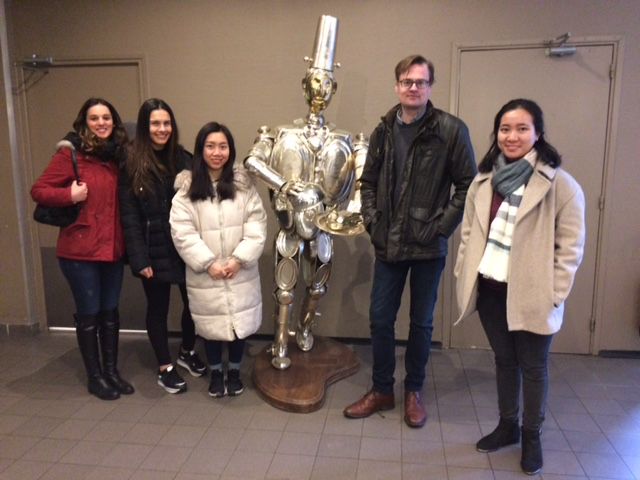
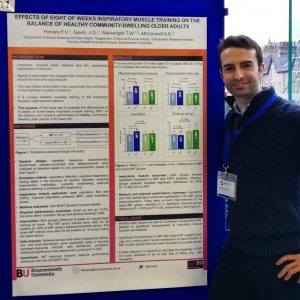

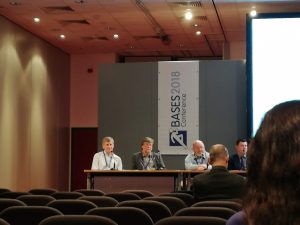

 oject is in 4 phases: Explore, Design and Develop, Test and Evaluate. October 2018 will see the SAIL project move into the third phase: Test. The visit to Hunstanton provided an opportunity to see at first hand the challenges which face the area in terms of supporting an aging population now and in the future. The Mayor of Hunstanton hosted an evening reception in the Town Hall to welcome the SAIL Research Team and to learn more about the progress which is being made.
oject is in 4 phases: Explore, Design and Develop, Test and Evaluate. October 2018 will see the SAIL project move into the third phase: Test. The visit to Hunstanton provided an opportunity to see at first hand the challenges which face the area in terms of supporting an aging population now and in the future. The Mayor of Hunstanton hosted an evening reception in the Town Hall to welcome the SAIL Research Team and to learn more about the progress which is being made.


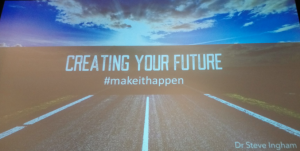
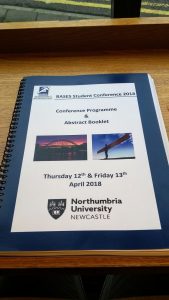

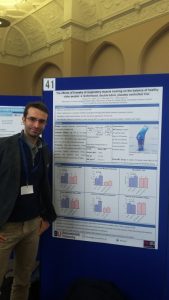


 On Thursday BU will host Sam Gyimah, the Minister for Higher Education, Science, Research and Innovation, for a question and answer event. This is an amazing opportunity for students and staff to directly question the Minister on HE and wider political matters.
On Thursday BU will host Sam Gyimah, the Minister for Higher Education, Science, Research and Innovation, for a question and answer event. This is an amazing opportunity for students and staff to directly question the Minister on HE and wider political matters.










 Dr. Ashraf cited on ‘Modest Fashion’ in The Guardian
Dr. Ashraf cited on ‘Modest Fashion’ in The Guardian NIHR-funded research launches website
NIHR-funded research launches website Academics write for newspaper in Nepal
Academics write for newspaper in Nepal New paper published on disability in women & girls
New paper published on disability in women & girls Global Consortium for Public Health Research 2025
Global Consortium for Public Health Research 2025 MSCA Postdoctoral Fellowships 2025 Call
MSCA Postdoctoral Fellowships 2025 Call ERC Advanced Grant 2025 Webinar
ERC Advanced Grant 2025 Webinar Horizon Europe Work Programme 2025 Published
Horizon Europe Work Programme 2025 Published Horizon Europe 2025 Work Programme pre-Published
Horizon Europe 2025 Work Programme pre-Published Update on UKRO services
Update on UKRO services European research project exploring use of ‘virtual twins’ to better manage metabolic associated fatty liver disease
European research project exploring use of ‘virtual twins’ to better manage metabolic associated fatty liver disease